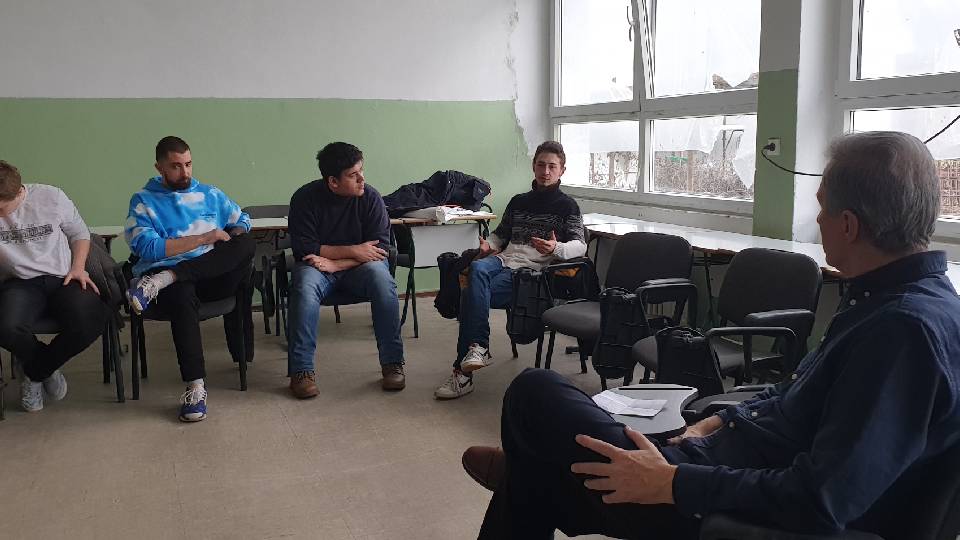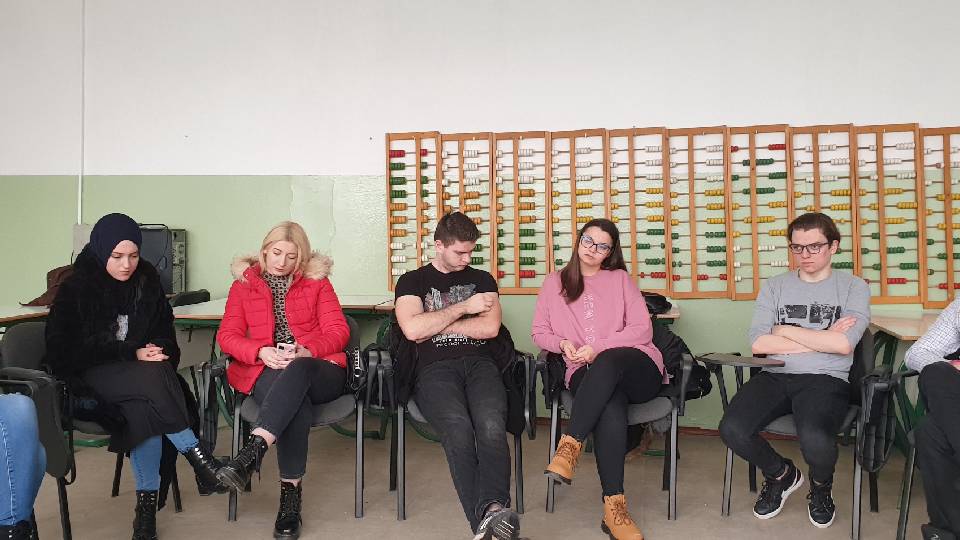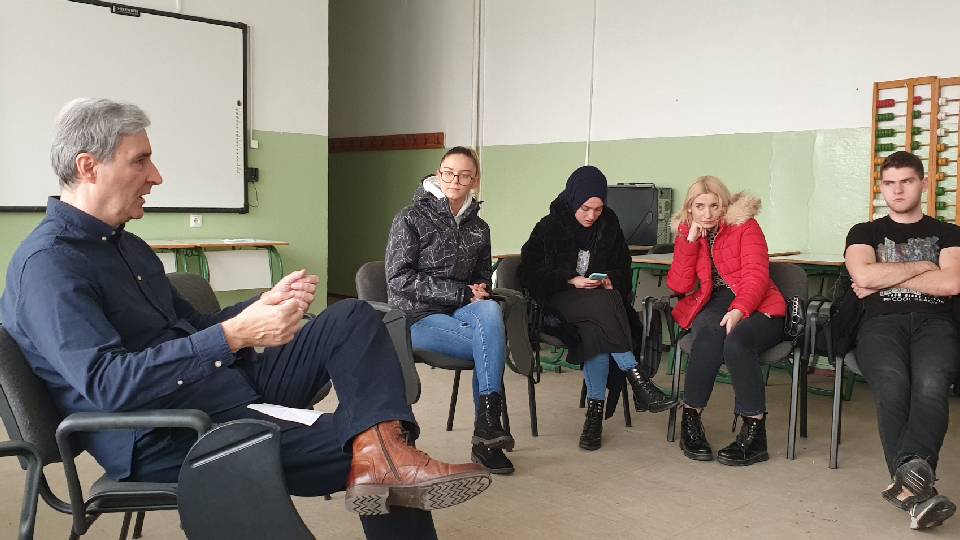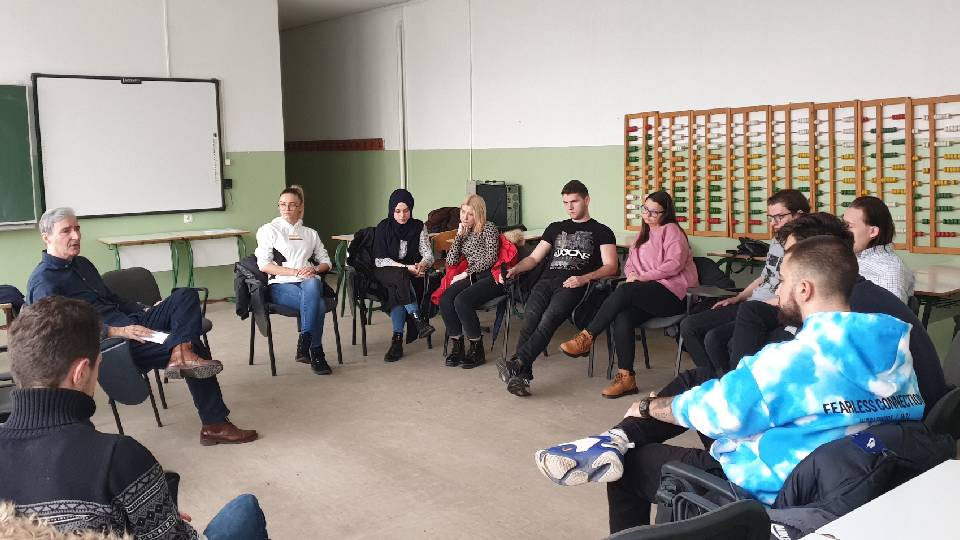On Friday, December 10, a debate discussion was held at the Faculty of Philosophy in Zenica within the framework of this year’s program “Socrates’ Cafes”. This interesting form of thematic discussions, as part of regular program-teaching activities, is organized this academic year by the Department of Cultural Studies of the Faculty of Philosophy, University of Zenica in cooperation with partners from the TPO Foundation Sarajevo. The program form “Socrates Cafes” is designed as a dialogue between students through which they freely express their opinions on current social issues and problems that are primarily related to culture and the situation in Bosnia and Herzegovina. Teachers have the role of moderators and kind of introductory speakers who present the topics to be discussed.
In the last edition of this debate workshop, students of all years of the first cycle of the Department of Cultural Studies discussed the topic of Bridges to the Future, which related to the concept of interculturality and dialogue / relationships between different cultures. The keynote speaker and moderator was prof.dr. Damir Kukić. At the beginning of the discussion, the students tried to define the concept of interculturality as well as the importance of knowing one’s own and other cultures. In this part of the workshop, models of relations between different cultures were discussed, as well as the importance of dialogue for the improvement of these relations and the creation of a quality context for sustainable development in the cultural sense.
An important part of the discussion was related to recognizing the dangers of cultural assimilation, ie the attempt to subordinate and homogenize other cultures by a dominant culture. In this context, the relationship between the West and the East was discussed, as well as the dissatisfaction of the Arab world with the globalization process in which the influence of Americanization prevails, as well as the negative consequences of Talibanization of a society. They also discussed the connection of culture with the centers of power (political, ideological, economic) and, very importantly, its role in modeling ethno-national identity – especially in Europe and, more recently, in the Western Balkans. This relationship between culture and ethno-national identity in Bosnia and Herzegovina was singled out in the discussion as a separate topic.
In the final part, the discussion is focused on the analysis of ethno-national conflicts in BiH, as well as the threats of a new war in BiH. This debate also discussed the relationship between the village and the city, ie recognizing the territorial demarcation of different ethno-national communities in rural areas, as well as the concept of the city as a potential (public) space in which civil society emerges and where there are conditions for de-ethnicization and culture. Certain conclusions pointed out by the students point to a situation, which is very certain, in which different cultures will remain at a distance and even in opposing positions. An alternative was mentioned that should insist on a culture of diversity, respect for identity and intercultural dialogue, while respecting certain universal values in order to gather humanity around the same essential values.








